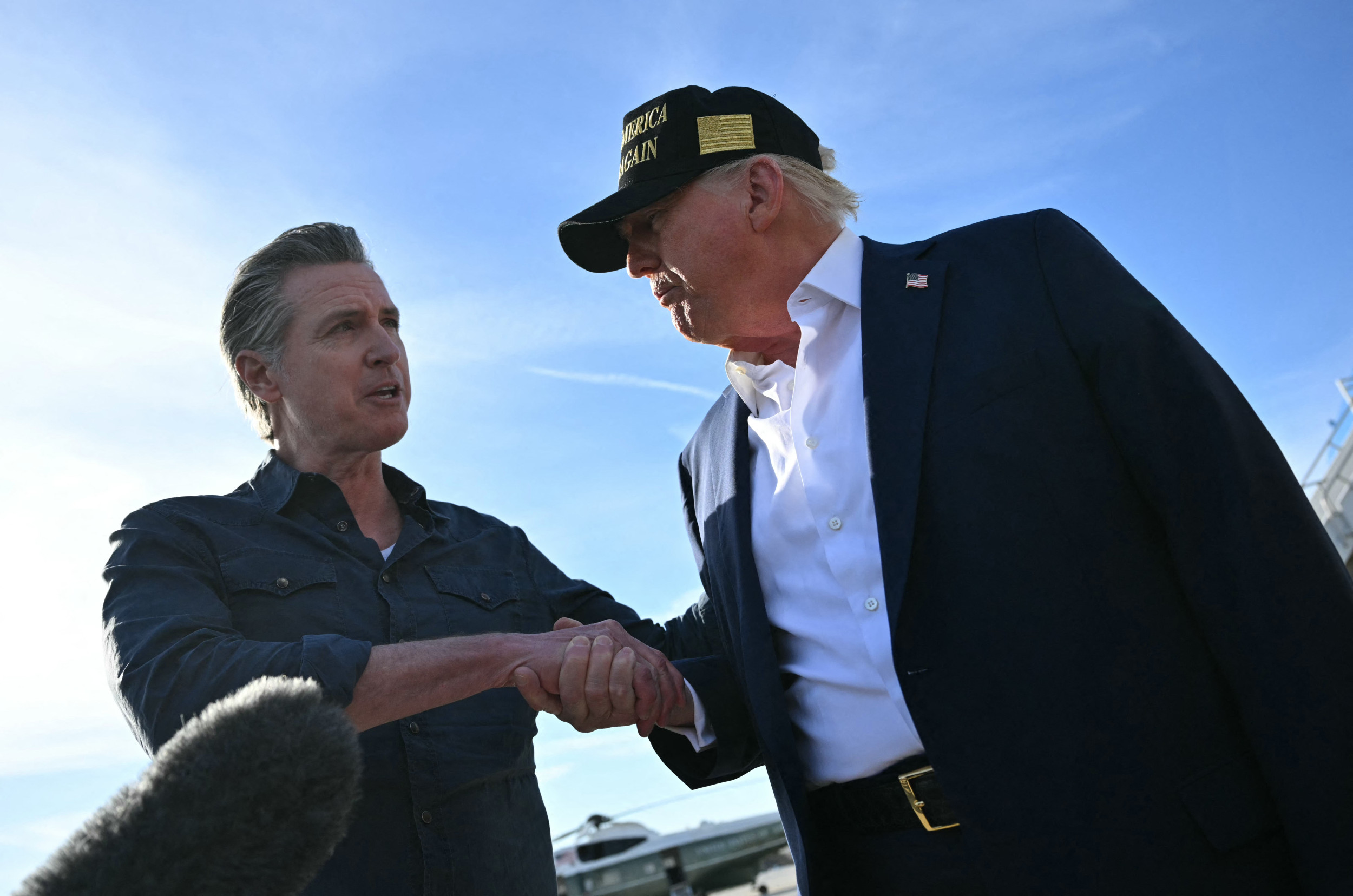Rumors of the president’s death escalated over the weekend.
Donald Trump ended his proof of life Truth Social posting spree with a two-word and triple exclamation point sign off, “GOOD NIGHT!!!”
The 79-year-old president assured his MAGA followers and Never Trumpers he had “NEVER FELT BETTER IN MY LIFE” after a debate raged online about his health.
Rumors of his death escalated over the weekend after Trump had not been seen in public for most of the week, speculation fueled by his mysterious bruised hands and bulging cankles.
Trump’s health update responded to a post that said, “Joe Biden would go multiple days at a time without any public appearances and the media would say he’s `sharp’ and `top of his game’… Meanwhile he was wearing diapers and napping.”
Trump swamped his Truth Social account on Saturday with AI-generated content, and returned to the familiar ground of crime and all caps on Sunday.
He mentioned his crackdown in Washington twice in a row, posting, “DC IS NOW A CRIME FREE ZONE, IN JUST 12 DAYS!!! President DJT.”
Trump then shared what he claimed were crime stats from a “list I get every single day,” documenting the number of arrests made, offenses, and how many firearms were seized. He posted that there was one arrest over “assault on a federal officer and threats to the President.”
Switching topics, the president reposted a letter from Delta Sigma Theta Sorority, which supported Lisa D. Cook. Trump has accused Cook of mortgage fraud in his attempt to get her fired from the Federal Reserve Board of Governors.
“We also see a troubling pattern of efforts to discredit leaders and experts who are eminently qualified and prepared to lead and to serve,” the letter from International President Cheryl W. Turner noted.
Trump ranted, “This is a total Conflict of Interest. The Judge must RECUSE, IMMEDIATELY!!! President DJT.” He also found time to slam U.S. District Judge Jia Cobb, who blocked his fast-deportation process.
“Same Judge as on Fed Case,” Trump posted. “I wonder how that happened??? Must recuse!!! President DJT.”
He then pivoted to another presidential passion project, the mean streets of Chicago, shouting, “CRIME IS TOTALLY OUT OF CONTROL IN CHICAGO. 6 DEAD, 24 BADLY WOUNDED, LAST WEEK ALONE!!!”
Speaking on CBS’s Face the Nation on Sunday, Homeland Security Secretary Kristi Noem said the president had not ruled out potentially deploying National Guard troops in Chicago.
“That always is a prerogative of President Trump,” Noem said.
Just before he logged off for the night, Trump found time to return to his beloved tariffs, claiming they would bring “more than 15 trillion dollars” into the U.S.
He stated, “If a Radical Left Court is allowed to terminate these Tariffs, almost all of this investment, and much more, will be immediately cancelled! In many ways, we would become a Third World Nation, with no hope of GREATNESS again. TIME IS OF THE ESSENCE!!! President DJT.”
His concerns follow the U.S. Court of Appeals ruling on Friday that most of his tariffs are illegal. They found that the International Emergency Economic Powers Act (IEEPA) statute used by Trump to impose international tariffs did not “explicitly include the power to impose tariffs.”
After that, the president tapped out with his “GOOD NIGHT!!!” post.








